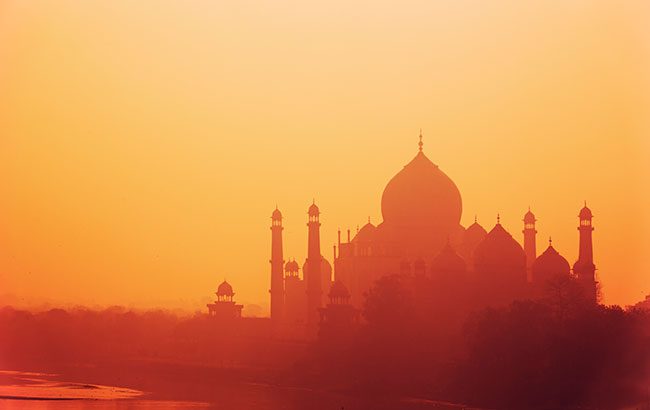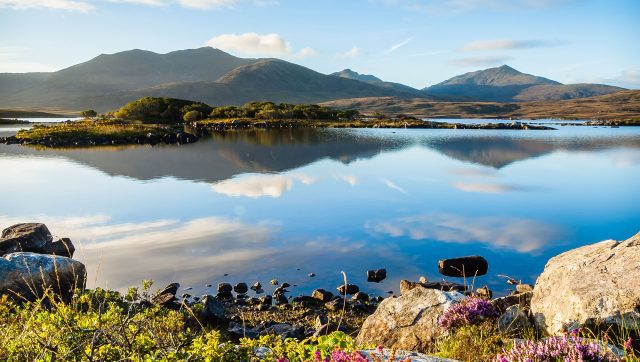What would an India-UK free trade deal mean for Scotch?
India’s maze of state-controlled alcohol laws means it is hard for Scotch brands to make their mark in the country as a whole. But a mooted free trade agreement could open up the territory to a whisky gold rush.

*This feature was originally published in the December 2022 edition of The Spirits Business magazine.
“In all the time I’ve been in the industry, I have never felt as optimistic about the potential for a UK trade deal as now,” says Leonard Russell, managing director of Ian Macleod Distillers, about the tantalising prospect of India, the world’s biggest whisky market, finally opening up to Scotch. The country’s punitive tariffs have held back the drink for decades, but change is in the air.
“The FTA (free trade agreement) is happening, and Scotch whisky is on the table,” said Ivan Menezes, Diageo’s CEO at the firm’s full-year results in July. “India has big asks and the UK has big asks, and we’ll have to wait for a new prime minister. But it’s more encouraging than it’s ever been.”
The new prime minister was to replace Boris Johnson, and the UK has had two in the meantime, which has meant the proposed completion deadline of this year’s Diwali on 24 October came and went. “The latest report I’ve heard is that talks are going to resume soon, and they may conclude by the end of March 2023,” says Rakshit Jagdale, managing director of Amrut Distilleries, speaking in mid-November.
Import tariffs
The battle to bring down India’s protectionist wall of import tariffs has dragged on for a while. “Just 18 years,” sighs Martin Bell, about his own involvement as deputy director for trade at the Scotch Whisky Association (SWA). In 2007, he was there to see India’s tariffs tumble from more than 600% to 150%, where they have remained ever since.
“150% is the maximum tariff that India can impose on wines and spirits under the World Trade Organization,” Bell says. “If you look at the Scotch whisky export stats from around about 2007, you can see that the upward trajectory steepened following that change.” Since 2010, the value of Scotch shipments to India has risen from £40.6 million to a peak of £166.2m in 2019. After collapsing in 2020 due to Covid-19, it recovered to £146.1m last year, putting the country eighth in the drink’s export charts by value.
By volume, India is huge, notwithstanding the tariffs. It shipped the equivalent of 136m bottles of Scotch in 2021, more than the US, and second only to France. However, only a fifth was bottled in Scotland. Some brands are bottled in India, like Teachers, Passport, and Vat 69, but the majority of what’s imported in bulk disappears into bottles of Indian whisky, a spoonful at a time. Despite being the world’s second-biggest importer of Scotch, the category has a mere 2% of the Indian whisky market, according to the SWA.
For a skilled salesperson in Amrut’s home city of Bangalore, a bottle of Johnnie Walker Red Label at Rs3,500 (£36) costs more than their weekly wage, which explains why Scotch whisky remains out of reach for so many, and why the industry is so determined to smash down the wall. “When we were in the EU, Scotch was its biggest spirit export, and I know from experience that the Commission was fighting really hard,” says Bell, about the EU’s attempt to forge a trade deal with India. “The negotiations went on for a few years, but didn’t eventually get anywhere. It was close, and for us you could see a ‘landing zone’, as they say in trade negotiations.”

Now that landing zone has edged closer. Behind the scenes India’s negotiators are playing hardball on issues like the rights of Indian students to stay and work in the UK. On 11 October The Independent reported that then home secretary Suella Braverman had complained that “liberalising visas for Indian travellers to the UK was ‘not what people voted for with Brexit’” – comments that apparently “incensed the Indian side”. If this elusive deal that eluded the EU is finally struck, it stands to reason that it would be loudly trumpeted by UK ministers as proof that Brexit was worth it, and it wasn’t just about the return of blue UK passports.
A government press release at the start of negotiations in January listed the potential benefits under the headline: ‘Golden opportunity for Scotch whisky as UK launches India talks’. It quoted Mark Kent, the SWA’s chief executive, who claimed “an ambitious tariff reduction… could grow Scotch whisky exports to India by £1 billion over five years.” And: “Tackling the tariff and state-level regulatory issues would open the market up to smaller producers who are effectively locked out by the substantial barriers to trade.”
The figure mentioned by Kent comes from a report by the Fraser of Allander Institute, commissioned by the SWA last year, which threw up a vast range of possible outcomes depending on the size of the tariff cut and the price elasticity of demand for Scotch. At present, a rate of 75% in year one seems plausible, or possibly 100% if Indian distillers get their way, with it gradually reducing thereafter. In which case £1bn sounds optimistic. And it may be more complex.
“There’s still quite a lot of debate over the minimum value of spirits going into India,” says Russell. “So, I’m not sure if any new ad valorem rate would apply across everything. They may well split it into sectors of ‘value’, ‘standard’ and ‘premium’.”
Time will tell, but in late 2021 the state of Maharashtra, home to Mumbai, gave a glimpse of what could happen to demand when it halved the duty on imported spirits bottled at source. Its annual excise revenue had fallen to Rs1bn (£10.3m) allegedly because of the spirits, mainly whisky, smuggled over the border from neighbouring states with lower duty rates. “With this cut we expect incidents such as people smuggling bottles from Delhi and other states to Maharashtra cities through flights or trains to come down,” customs officials told The Times of India in November 2021. It was expected that the retail price of Scotch would fall by at least 35%-40%, which would boost annual sales and excise revenue by 250% in time.
Good news/bad news
It was a big win for the lobbyists at the International Spirits & Wines Association of India (ISWAI), whose members include Diageo, Pernod Ricard, and Bacardi, but it was bad news for Indian distillers such as Amrut. “What we’ve seen with Maharashtra is the benefit given to imported Scotch whiskies, and I believe ISWAI have shot themselves in the foot,” says Jagdale. “Johnnie Walker Red Label has crashed to prices that are cheaper than bottled-in-India Scotch, and I think premium Indian whiskies like MaQintosh will face a lot of headwinds.”
Amrut’s award-winning single malts, such as Fusion, may escape import duty in India, but Jagdale claims they cost more to produce, with the alcoholic yield from Indian barley being 20% less than Scottish barley, while the casks evaporate and mature much faster than they do in Scotland. The Indian distiller’s trade body, the Confederation of Indian Alcoholic Beverage Companies (CIABC), is seeking exemption from the minimum three-year maturation rule to sell younger Indian whiskies as ‘whisky’ around the world.

“We want a logic-based solution to be found and urge the British side not to be unscientifically obstinate about it,” says Vinod Geri, the CIABC’s director general, though for the SWA the three-year rule is a ‘non-negotiable’ red line. Geri also wants “a minimum export price to prevent predatory pricing, dumping and under-invoicing”.
He says Indian whiskies are often penalised at state level. In Kerala, the worst offender, a brand such as Bagpiper gets thumped with a 228% tax, compared with 78% for the likes of Ballantine’s. Indian states, particularly in the south, rely on these sin taxes for a third or more of their income, which may be just as well for the drinks industry in a country committed to prohibition in its constitution.
The CIABC propose that tariffs drop to 100% then slowly reduce to 50% over 10 years. “We have also conveyed our willingness to live with greater concessions on bulk Scotch if that makes the deal sweeter for the UK,” says Geri. Of course, it would be equally sweet for his members, given how much Scotch is dribbled into premium Indian brands, but the supply of bulk whisky might well be squeezed if this FTA with India happens.
If Scotch were to treble its share of the Indian market to 6% “it’s still going to be a niche”, says SWA’s Bell, even if that equates to a staggering 400m bottles. Back in Scotland, you wonder if there is enough whisky to supply such demand. “Potentially not,” says Russell, who feels producers will want to bottle as much as possible rather than export it as cheap bulk whisky if supplies run short.
Diageo is clearly the biggest player, with a foot in both camps, given its wide portfolio of Scotch brands and its 56% stake in United Distillers, India’s leading whisky producer. In July, CEO Ivan Menezes insisted the company was ready if and when tariffs come down. “For a product like Scotch whisky there’s nothing like more demand,” he said, adding, that if Diageo’s stocks do start to run out, “all we’ll do is make it more expensive.”
Related news
Golf drives Glen Moray push in UK travel retail
